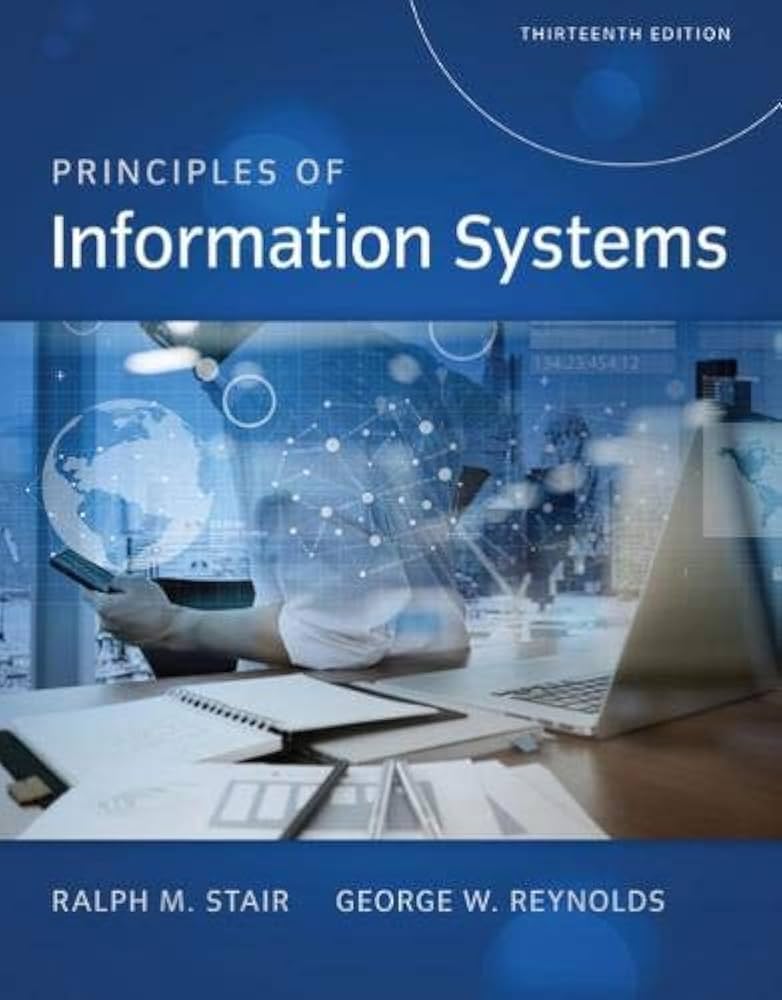Introduction
Information systems are crucial in the modern business world, providing a framework for managing, storing, and communicating data within an organization. They have become an integral part of any company’s operations, and their effective utilization can give an organization a competitive advantage. Ralph Stair and George Reynolds are two renowned authors known for their work on information systems. In this blog post, we will discuss the key principles of information systems based on their book, Principles of Information Systems: A Managerial Approach.
Who are Ralph Stair and George Reynolds?
Ralph Stair is a professor of information systems at Florida State University. He has over 40 years of experience teaching and researching information systems, and has authored several books and articles on the subject. Stair is also the co-founder of the TelData West Corporation, a telecommunications consulting firm.
George Reynolds is a professor emeritus of management information systems at California State University. He has published over 70 articles and books, and is a well-known expert in the fields of management information systems and software engineering.
The Principles of Information Systems
Stair and Reynolds’ book on information systems outlines the key principles that managers should understand to effectively utilize information systems within their organization. These principles are:
1. Information systems should be aligned with organizational objectives
The first principle emphasizes the importance of aligning information systems with the overall goals and objectives of the organization. This ensures that the systems are used to support and enhance the organization’s core business processes, rather than being implemented for their own sake.
2. Information systems should support decision-making
The goal of information systems is to provide accurate and timely data to stakeholders, which can aid in decision-making. Stair and Reynolds stress the importance of information systems’ ability to provide relevant and meaningful information to support decision-making at all levels of the organization.
3. Information systems should be integrated
Another key principle is the integration of information systems within an organization. This involves connecting different systems and applications to share data and resources, providing a seamless flow of information throughout the entire organization.
4. Information systems should be user-friendly
Stair and Reynolds emphasize the importance of user-friendly information systems that are intuitive and easy to use. This ensures that employees can easily adopt and use the systems, increasing their efficiency and productivity.
5. Information systems should adhere to ethical and legal standards
With the increasing amount and sensitivity of data being handled by information systems, it is crucial to ensure that ethical and legal standards are followed. This includes protecting the confidentiality and privacy of individuals’ data, as well as complying with relevant laws and regulations.
6. Information systems should be continuously evaluated and improved
The final principle emphasizes the importance of continuously evaluating and improving information systems to meet changing business needs and technological advancements. Regularly reviewing and updating systems ensures that they remain effective and relevant to the organization’s operations.
Conclusion
Ralph Stair and George Reynolds’ book on the principles of information systems provides a comprehensive guide for managers to utilize information systems effectively within their organizations. By aligning with organizational goals, supporting decision-making, integrating systems, ensuring user-friendliness, adhering to ethical and legal standards, and continuously evaluating and improving, organizations can harness the full potential of information systems and gain a competitive advantage in the dynamic business world.




